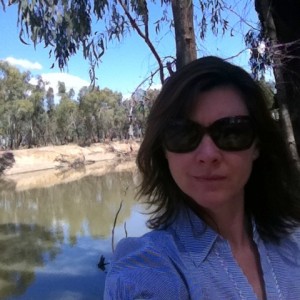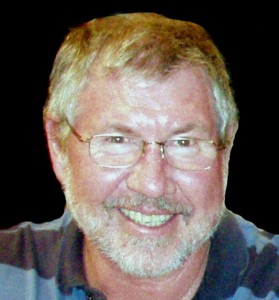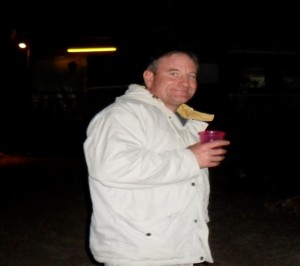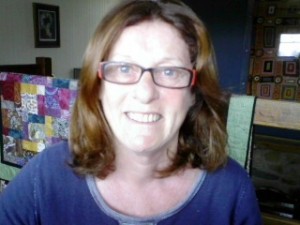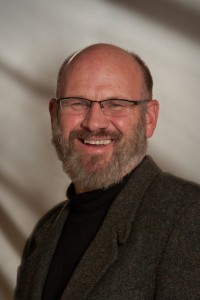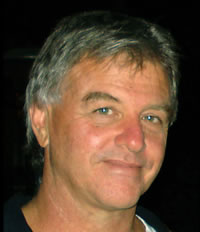Executive Profiles 2015
President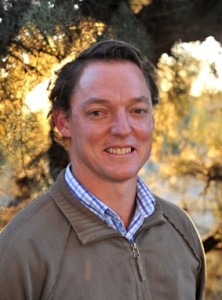
Boyd Blackwell
As President, Boyd leads the Society into its biennial conference year. He is excited about the New England region being the host and delegates able to experience the ‘highs’ of some of Australia’s Central Eastern Rainforest Reserves World Heritage. Boyd belongs to ANZSEE because he believes in the philosophy of combining principles of ecology and economics and working in multi-disciplinary teams to solve problems. He also believes that real community change comes from the people themselves and the groups that they develop like ANZSEE.
Website: https://www.une.edu.au/staff-profiles/business/bblackw2
Vice-President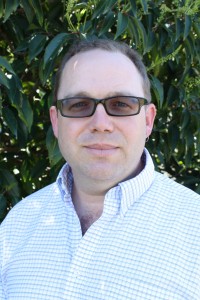
Steve Hatfield-Dodds
Steve was a founding member of ANZSEE, and is a past President and Vice President of the regional society. He is convinced of the power of ideas and robust analysis, when they are communicated well and with integrity. His research interests revolve around the theory and practice of adaptive governance – how societies and groups evolve policies and institutions that deliver better outcomes.
Within this largish topic he is particularly interested in policy design and assessment, sustainability, the power of ideas, understanding and harnessing complex motivations and values, the science-policy nexus, and the contribution of social and economic sciences to governing interdependent complex adaptive systems. His career is divided pretty evenly between work as a senior policy advisory and as researcher.
He is fond of espresso and appreciates dark chocolate.
Treasurer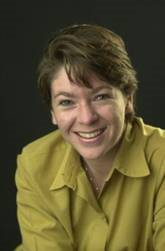
Simone Valle de Souza
Simone de Souza graduated in her PhD from the University of New England in 2014. She was appointed Research Lecturer in public policy in February 2013 and since then has been developing research in resource economics and local government infrastructure. Her current research projects include water management and the development of weather-related disaster resilient infrastructure in local governments, working closely with Queensland local councils. Simone also currently serves as the Deputy Director of UNE’s Centre for Local Government.
Website: http://www.une.edu.au/research/research-centres-institutes/centre-for-local-government
Secretary
Leonie has been engaged with ANZSEE (on and off) for over a decade, this is her first time as president and she is keen to make the society more collaborative and engaged with policy and research. Having experienced private consulting, government and industry she is having fun in academia doing great research around sustainability and resilience with government; for the communities in the Murray-Darling Basin and urban centers.
General Executive
Kim McClymont
Kim joined the ANZSEE in 2000 and has been on the Executive & 3 Conference Committees since 2009. Kim joined ANZSEE as the Society aligned with his thinking and key interest in the need for an integrated multi-disciplinary approach to addressing critical ecological, economic & social sustainability issues.
Anitra Nelson
Anitra is a widely published scholar-activist with interests in environmental sustainability, nonmarket socialism a nd community-based governance. Current work includes an Australian environmental justice project linked to the international EJOLT (http://www.ejolt.org/) project based at ICTA, UAB (Barcelona). Anitra posts at the Progress in Political Economy site (http://ppesydney). She is also the sole editor of Steering Sustainability in an Urbanizing World: Policy, Performance and Practice (2007 Ashgate), co-editor of Life Without Money: Building Fair and Sustainable Economies (2011 Pluto —http://www.lifewithoutmoney.info/), her PhD Marx’s Concept of Money: The God of Commodities was published by Routledge (1999), Anitra is also co-editing Sustainability Citizenship in Cities: Theory and Practice under contract by Routledge (2015) and writing Small is Necessary: The Efficiencies of Shared Living under contract for Pluto Press (2016).
nd community-based governance. Current work includes an Australian environmental justice project linked to the international EJOLT (http://www.ejolt.org/) project based at ICTA, UAB (Barcelona). Anitra posts at the Progress in Political Economy site (http://ppesydney). She is also the sole editor of Steering Sustainability in an Urbanizing World: Policy, Performance and Practice (2007 Ashgate), co-editor of Life Without Money: Building Fair and Sustainable Economies (2011 Pluto —http://www.lifewithoutmoney.info/), her PhD Marx’s Concept of Money: The God of Commodities was published by Routledge (1999), Anitra is also co-editing Sustainability Citizenship in Cities: Theory and Practice under contract by Routledge (2015) and writing Small is Necessary: The Efficiencies of Shared Living under contract for Pluto Press (2016).
Website: http://www1.rmit.edu.au/staff/nelson_a
Jim has recently joined the ANZSEE as an executive in 2014 and is delighted with the appointment. Before becoming an economist he had over 25 years of experience of working in Hospitality, Agriculture, Construction and Trade-related industries and has also spent time in many third world countries. Combining these experiences has led him to become involved with the global ecological economics community. Jim believes that in the not-so-far distant future ethical decisions will have to be made concerning the globe’s human participants and ecological economics will play a vital role in our continuing existence.
Laura has a B.A. (Hons.) Politics and Economics, and a B.Sc. Botany from the University of Cape Town, and a Masters in Climate Change Adaptation, from the University of the Sunshine Coast. She is a PhD candidate at The University of Melbourne School of Ecosystem and Forest Sciences, where she is researching financial mechanisms for application to conservation finance in the field of ecological economics. Laura spent 25 years in the corporate sector in strategy, finance and economics as a corporate strategy executive and then management consultant. Her interests are conservation and valuing natural capital. She lives off grid in a bushland estate of Box-Ironbark forest in Central Victoria, and hails originally from Cape Town, South Africa.
Paul C. Sutton is a professor of Environmental Science at the University of South Australia. He serves as the Head of Discipline of environmental and geospatial sciences in the School of Natural and Built Environments. Dr. Sutton obtained his B.S. from Union College in Chemistry, and his M.A. and PhD in Statistics and Geography from UCSB. Prior to his appointment at the University of Denver, Paul Sutton worked as a high school physics and math teacher and as a process engineer in the aerospace industry. He served as Director of Graduate Studies and the director of the MS in Geographic Information Science program at the University of Denver from 1999 to 2012. His general research interests are in the general area of human-environment relations and interactions. Much of his research involves the use of nighttime satellite imagery for mapping and measuring population distribution, economic activity, anthropogenic impact on the environment, and urban sprawl. Dr. Sutton is also interested in the mapping and valuation of ecosystem services. Future research activity will involve the development of spatially explicit maps of carrying capacity at various spatial scales and developing metrics of urban metabolism to establish baseline measures in the field of urbanization science.
Co-Opted Executive
Dr Younus joined the ANZSEE in 2007 as an Executive. He is a Visiting Research Fellow of the University of Adelaide. Dr Younus has interest on vulnerability and adaptation, ecological valuation, and urban environment; he has published two books on vulnerability and adaptation to climate change in Bangladesh.
Peter is an ecological economist at the School of Environment at Griffith University in Brisbane. Griffith Uni was established in the 1970s as an innovative inter-disciplinary university focused upon environment and other key theme areas (so this where I belong! ). Peter has an interdisciplinary background with degrees in environmental science, economics, sociology and human geography. Major research foci include sustainable consumption, well-being, and techniques for measuring and reducing the impact of humans on nature (for example, environmental input-output, eco-footprint, material flow and life cycle analyses).
Website: http://www.griffith.edu.au/environment-planning-architecture/griffith-school-environment/staff/dr-peter-daniels
Communications Manager
Madeleine Black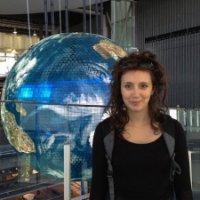
Madeleine is a PhD Candidate in the School of Environmental and Rural Sciences at the University of New England. Madeleine currently working on a project exploring strategies to engage farmers in conservation programs within the Northern Tablelands and North-West Slopes of NSW. Her work encompasses a mix of both social science and environmental economic methodologies. Madeleine’s research interests include, conservation contract and incentive design, endangered species conservation, visions for sustainable rural futures, and water resource management. Madeleine has worked and studied at various universities across Australia, including Griffith University, University of Queensland, University of Tasmania and University of New England.

